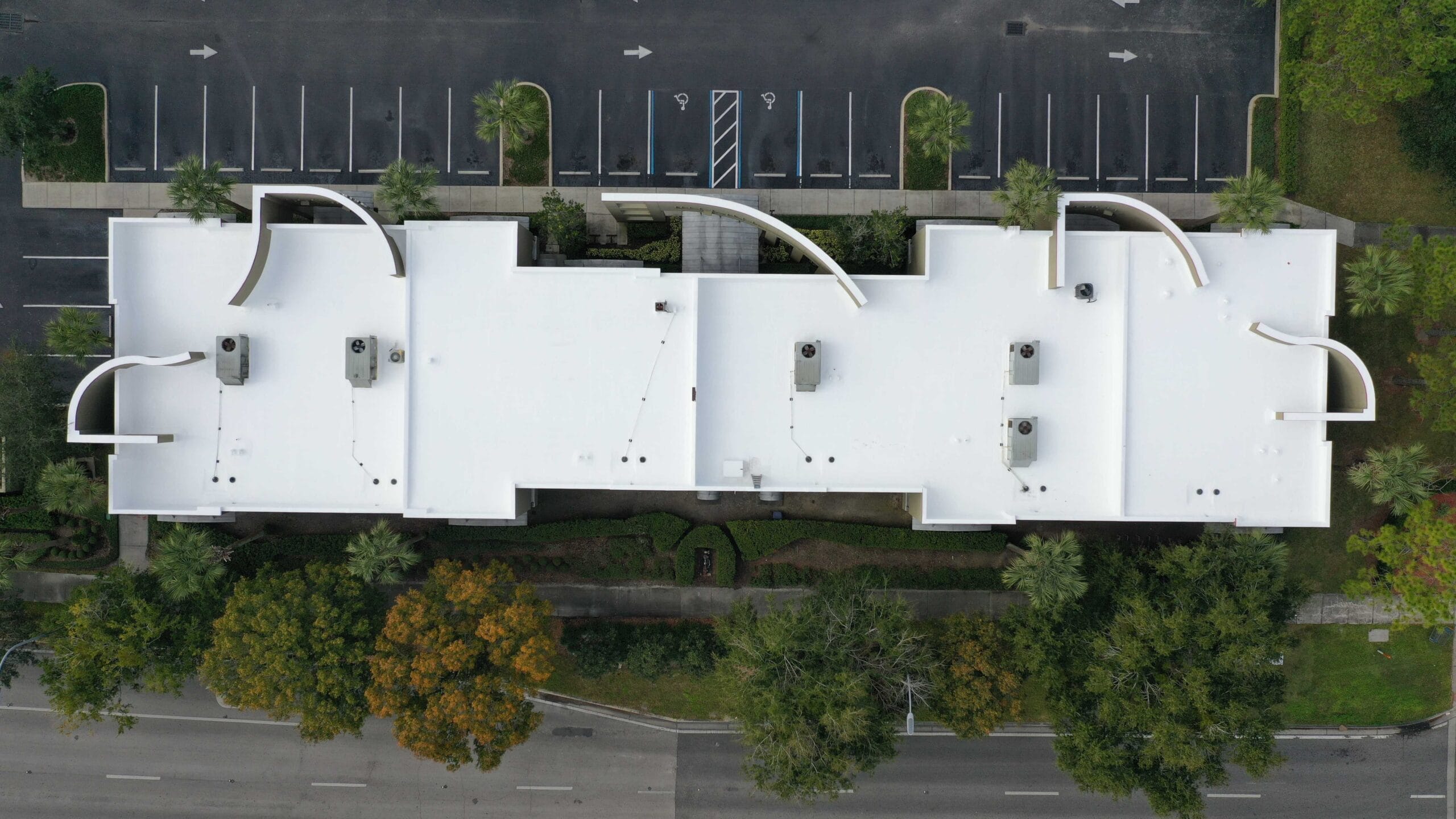When severe weather strikes, it puts your home’s roof to the test. Understanding how different weather conditions impact roofing materials can help you make informed decisions about your roofing needs. This article will explore the effects of various weather conditions, including hurricanes, on roofing materials and provide some tips on how to protect your home from storm damage.

The Impact of Hurricanes on Roofing Materials
Hurricanes are among the most destructive weather events, capable of causing extensive damage to roofing systems. High winds, heavy rain, and flying debris can all contribute to the destruction of your roof.
High Winds
Hurricanes bring with them powerful winds that can rip shingles off a roof. These winds can also cause damage to the underlying structure of the roof. Asphalt shingles, a popular roofing material, are particularly vulnerable to being lifted and torn by high winds.
Heavy Rain
The heavy rains associated with hurricanes can lead to water infiltration if the roofing materials are compromised. Once water penetrates the roof, it can cause significant damage to the interior of the home, including mold and mildew growth.
Flying Debris
Flying debris is another significant threat during hurricanes. Items like tree branches and outdoor furniture can become projectiles that puncture or otherwise damage your roof. Metal roofing and tile roofs are often more resistant to this type of damage compared to asphalt shingles.
Other Weather Conditions and Their Effects
Aside from hurricanes, other weather conditions can also impact the longevity and performance of roofing materials. Understanding these can help homeowners prepare for various weather-related challenges.
Snow and Ice
In colder climates, snow and ice can accumulate on roofs, adding weight and increasing the risk of structural damage. Ice dams, which form when the snow melts and refreezes at the roof's edge, can cause water to back up under the shingles, leading to leaks.
Hail
Hailstorms can cause significant damage to roofing materials. The impact of hail can crack or dent shingles, tiles, and metal roofing. This damage may not always be immediately visible but can lead to leaks over time.
Extreme Heat
Excessive heat can cause roofing materials to expand and contract, leading to cracks and other forms of damage. Asphalt shingles are particularly susceptible to heat-related damage, which can shorten their lifespan.
Choosing the Right Roofing Material
Selecting the appropriate roofing material can make a significant difference in how well your roof withstands severe weather. Here are some options to consider:
Asphalt Shingles
Asphalt shingles are the most common roofing material due to their affordability and ease of installation. However, they may not be the best choice for areas prone to high winds or extreme temperatures.
Metal Roofing
Metal roofs are known for their durability and resistance to weather-related damage. They can withstand high winds, heavy rain, and flying debris better than many other materials. Additionally, metal roofing reflects heat, which can help with energy efficiency in hot climates.
Tile Roofing
Tile roofs, often made from clay or concrete, are highly durable and can withstand various weather conditions. They are resistant to fire, hail, and wind, making them an excellent choice for storm-prone areas. However, they are heavier than other materials, so the supporting structure must be strong enough to bear the weight.
Slate Roofing
Slate is a high-end roofing material known for its beauty and longevity. It is resistant to fire, wind, and hail, but like tile, it is heavy and requires a strong support structure.

Tips for Protecting Your Roof from Storm Damage
Taking preventive measures can help protect your roof from storm damage, saving you time and money in the long run.
Regular Inspections
Regular roof inspections can help identify potential weaknesses or damage before they become major issues. It's a good idea to have your roof inspected at least twice a year and after any significant weather event.
Trim Trees
Keep trees around your home trimmed to prevent branches from breaking off during a storm and damaging your roof.
Secure Loose Items
Before a storm hits, secure any outdoor furniture, decorations, or other items that could become projectiles and damage your roof.
Invest in Quality Materials
Choosing high-quality roofing materials that are rated for your area's weather conditions can provide additional protection against storm damage.
Conclusion
Understanding how different weather conditions affect roofing materials can help you make better decisions about protecting your commercial building. By choosing the right materials and taking preventive measures, you can minimize the impact of storms and extend the life of your roof. Regular maintenance and inspections are key to ensuring that your roof remains in good condition, no matter what the weather brings.
Contact CES Roofing for Storm Damage Inspections and Repair
Don't wait until the next storm hits to find out if your roof is in need of repair. Protect your home and investment by scheduling a storm damage inspection with CES Roofing today. Our experienced team will assess your roof for any vulnerabilities and provide high-quality repair services to ensure your roof is storm-ready. Contact us now to book your inspection and take the first step in safeguarding your home against severe weather.

